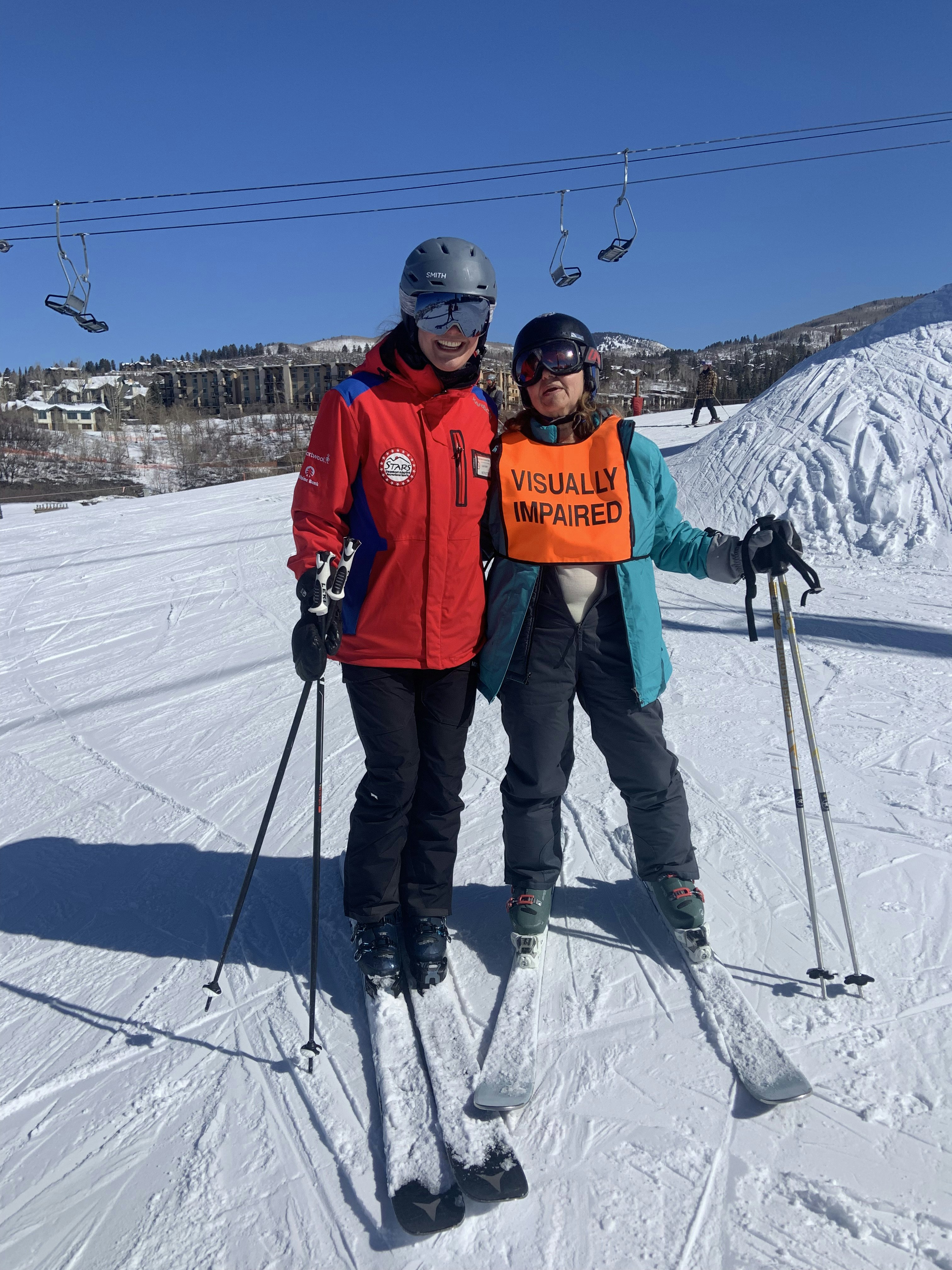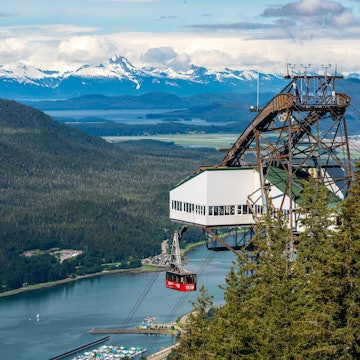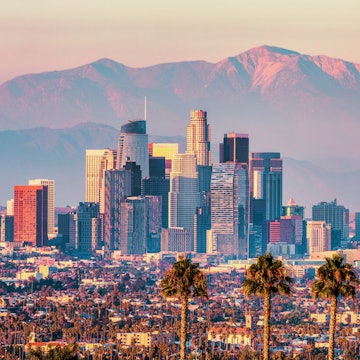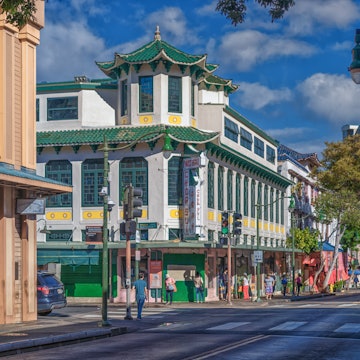
Discover the best resorts for skiers with disabilities in the US and Europe

Nov 27, 2023 • 6 min read

Adaptive ski resorts like Steamboat STARS ensure that nobody is left behind when it comes to winter sports © Frank Paradise / STARS
The largest ski resort in the United States is now one of the nation's most accessible.
Utah's National Ability Center (NAC) recently opened a 9400-sq-ft facility at the base of Park City Mountain Resort (PCMR), equipped with accessible bathrooms, chalet-style windows and enough adaptive sports equipment to ensure all people – regardless of ability – can shred the slopes.
"The building is beautiful," says chief program and education officer Tracy Meier – a vast improvement from the cramped, double-wide trailer where the NAC began its mission to provide safe, inclusive recreational activities for people with cognitive and physical disabilities.
The NAC's upgrade illustrates how ski resorts are becoming more inclusive. When Austrian amputee Franz Wendel attached crutches to a set of skis in 1942, he was an anomaly.

Today, adaptive equipment allows people with various disabilities to find freedom while flying down mountainsides worldwide.
Cory Lee, an accessibility-focused travel blogger with spinal muscular atrophy, tried adaptive skiing for the first time in April 2023 while visiting Oregon – a bucket-list dream that was 20 years in the making.
"It gave me so much joy to get out of my wheelchair and have that kind of adaptive experience," he says. "As a wheelchair user, it's not often that I get to do those kinds of adventurous activities."
Still, an increase in adaptive skiing opportunities doesn't mean every resort caters to every access need.
According to Catherine Cosby, who founded Mountains 4 All to connect disabled skiers to accessible European resorts, there's no "one-size-fits-all" for adaptive skiing.
"My advice to people is to do their homework and think about what they want out of the holiday," she says. "Seeing someone on social media sit-skiing, for example, does not necessarily mean that the resort would be suitable for them."
But don't let the variety of options be a deterrent. With plenty of preparation, athletes with autism, visual impairments, physical disabilities and more can enjoy the magic of the mountains across the US and Europe. Here are some of the most inclusive destinations worth checking out.

Steamboat Springs, Colorado
Most snow bunnies hop three hours northwest of Denver for the promise of "Champagne Powder" – a term trademarked by the Steamboat Ski Resort for their uber-fluffy snow. And that's not the resort's only allure.
Steamboat Springs is often on the cutting edge of accessibility. In 1977, the town became the first location to host the Special Winter Olympics. Then, in 2007, the adaptive snow sports program run by STARS turned the Colorado ski spot into one of the Rocky Mountains' most disability-friendly outdoor destinations. A dedicated team of instructors and volunteers offer half-day or full-day lessons in adaptive activities like skiing, snowboarding and snow biking.
"We use a variety of adaptive equipment to help people with physical or cognitive disabilities make the impossible seem possible," says the program's Executive Director, Susan Petersen.
In addition to on-mountain activities, STARS offers lodging on the outskirts of town at a fully-accessible 27-bed lodge.
Bend, Oregon
Oregon Adaptive Sports (OAS) – a year-round recreation organization for disabled individuals – offers alpine ski lessons at Mt Bachelor, Hoodoo Ski Area, and Mt Ashland. But when it comes to Pacific Northwest skiing, Mt Bachelor is king. This is Oregon's highest-altitude ski resort, with slopes reaching over 9000 ft along the Central Cascades. It's also a 30-minute drive from Bend – a destination that champions inclusivity.
Cory Lee, who visited Bend last spring, praises the area's accessible adventures, including wheelchair-friendly hiking trails at Alpenglow Park and Riley Ranch Nature Reserve. His highest praise goes to the ski instructors at OAS, who cater to disabled skiers with their adaptive equipment. The OAS team provided Lee with detailed information before his experience to ease any pre-ski nerves, then centered his needs on the mountain.
"They fully took my wants into consideration, and I had every bit of say throughout the experience," he says.
OAS serves more than 400 individuals with disabilities annually, including everyone from wheelchair users to people with visual or auditory impairments.
Chamonix, France
Downhill daredevils have been racing to this alpine town since the first Winter Olympics slid through Chamonix in 1924. Thanks to increased inclusion efforts over the past decade, it should also be a bucket list destination for disabled athletes who love sailing down pistes.
If you're looking for exceptional Handiski (another word for "adaptive") instructors, Cosby recommends the team at ESF Chamonix – a ski school with lessons for people with physical disabilities and visual impairments.
Cosby recently arranged a Chamonix ski trip for a man with quadriplegia who uses a ventilator, citing experienced teachers as her main reason for choosing the destination. "Everybody, including the lift operators, was phenomenal," she recalls of the experience.
For those more interested in après-ski than slope time, Chamonix is still tops. In 2013, this French Alps oasis became the country's first mountain town to earn the Label Tourisme Handicap – an official seal of approval signifying a local commitment to create accessible public spaces.

Gstaad, Switzerland
When it comes to idyllic mountain destinations, snow-capped Switzerland gets high marks – and many first-rate towns like Verbier and Zermatt boast adaptive ski programs. But when it comes to accessibility, Cosby says Gstaad is the best – particularly for skiers with visual impairments, who can choose from an army of specialized instructors.
Skischule Gstaad, a local ski school, also offers lessons for people with physical and cognitive disabilities – or anyone interested in downhill sit-skiing.
For those who prefer a slower pace, Gstaad has accessible opportunities for snowshoeing and cross-country skiing; there's even a wheelchair-friendly outdoor ice rink in the center of town, where "gliders" are attached onto personal chairs.
Park City, Utah
With 7300 acres of skiable terrain rolling along the Wasatch Mountains, Park City is a skier's paradise – and an easy 30-minute drive from Salt Lake City. Now, thanks to the NAC's new McGrath Family Mountain Center at the base of PCMR, it's never been easier to join alpine skiers on world-renowned trails.
"We serve all abilities and all ages," says Tracy Meier, "and that includes common things you probably have heard of, like Down Syndrome, autism spectrum disorders, amputation and spinal cord injury. But we also work with groups under rare and undiagnosed categories."
The NAC gives roughly 4000 lessons a year – all led by a team of adept skiers proficient in working with the disability community and adapting their styles to fit unique needs.
"It's one of our favorite things when a family calls and says, 'We used to ski as a family – do you think we can do it again?' We love saying yes. It might be a little different. It might take us a little bit of time to figure it out, but we do."






















